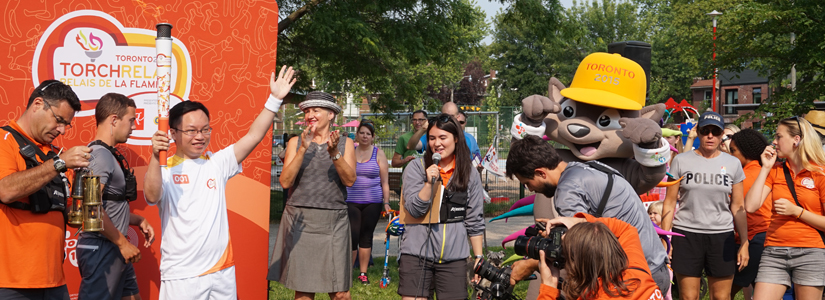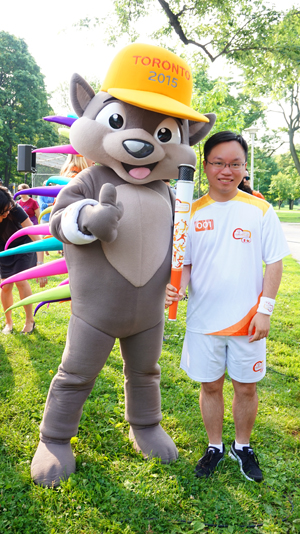

York PhD student Chris Chen with the Pan Am torch during the relay
A third-year York kinesiology PhD student was one of the torch carriers in the relay that opened the recently completed Toronto 2015 Pan Am Games.
Chris Chen, a member of Professor David Hood’s lab in the Faculty of Health, also volunteered at the games as an event services team leader at the new athletics stadium on York's Keele campus.

York PhD student Chris Chen with Pachi the Pan Am Games mascot
“Before torchbearers were selected, I was already a Pan Am games volunteer. I received notification one day from the torch relay team seeking torchbearers and I applied,” he said. “I explained I wanted to be a torchbearer because of my love for large sporting events like the Olympics and how proud I was to be Canadian during the 2010 Vancouver Olympic games.”
“I further explained that I was a PhD student studying kinesiology at York U and that exercise is an integral part of my research and seeing athletes perform at a high-level is really inspiring. To me, there is no better honour for the games than to hold the flame for my fellow Canadians,” said Chen.
As part of his duties as a volunteer Chen led a group of volunteers that provided services to spectators, athletes and the media. His role included bringing athletes from their preparation area to the field of play, ensuring the media knew where they were located and helping spectators find their seats.
His research is on the study of muscle physiology and how exercise and aging affects muscle function. Specifically, he examines mitochondria, the powerhouses of the cell. He is particularly interested in the molecular pathways involved in improving mitochondrial number and function through exercise. At the opposite end of the spectrum, Chen examines what goes wrong with mitochondria during muscle loss with aging.
